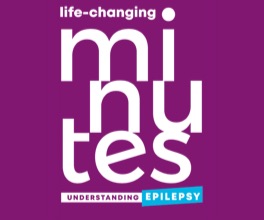Depression is a single word that carries a multitude of meaning. It is a mood disorder that can touch every aspect of our lives yet has distinctly individual characteristics.
From being in low spirits to feelings of despair or helplessness, its impact ranges from can mild disruption to a more severe, life-threatening influence.
Periods of sadness and mood fluctuation are part of our natural response to adversity but, if they persist, they are classed as depression and they can have a significant negative effect on family life, relationships, work and health
Depression is common. More than 264 million globally of all ages suffer from it, according to the World Health Organisation.1 The burden of depression and other mental health conditions is growing and each year and 25% of Europe’s population experiences depression or anxiety.2
The triggers can be multiple and varied. Studies have confirmed that big factors such as homelessness, unemployment, lack of education and opportunity are heavy contributors to mental health struggles in young Europeans. But seemingly smaller incidents or tilts in relationships can also usher in depression.
Eurofound, a EU agency for the improvement of living and working conditions, recorded that 14% of young adults are at risk of depression while four per cent of people aged 15 to 24-years-old in Europe are already in the clutches of chronic depression.3
Recognising and coping with the causes of depression is not easy, and seeking help still carries stigma so millions of people suffer in silence even though there are effective treatments available.
Talking to a friend or a family member about issues is an important but, often, difficult first step to make. This is compounded by most people feeling embarrassed or hesitant to offer help because they do not understand how to connect or feel they don’t have the skills to make a difference.
Peer support, from a friend or family member, is one of the most effective first-stops on a treatment pathway that can include Cognitive Behavioural Therapy (CBT) and Interpersonal Psychotherapy and carefully-deployed antidepressant medication.
Five Tips on how to help a friend with Depression
Take Notice
Aside from the low and/or negative mood, there are other signs that give an early warning to the advance of depression; a person could be depressed if they have lost interest in things they normally enjoy, is listless, overeats or goes off their food, has trouble concentrating or sleeping, or withdraws from family and friends.
How to start a conversation
Finding the right time and words to initiate a conversation about depression can be hard so it is worth picking some phrases that show you are concerned about them and want to know how they were doing. Finding the right time and place can make it easier such as raising it when the person is relaxed and at a time and place when there will be no interruptions. The charity Age UK states: “You may feel uncomfortable bringing up a sensitive topic, especially if the person you’re concerned about doesn’t often talk about their emotions. Explain why you are concerned but avoid diagnosing their problem or forcing solutions.”4 Stick to a vocabulary they understand and can relate to.
Be a Listener
Being a good listener is an act of kindness and its value should never be underestimated. We all know that just talking about a problem can ease tension and make it seem less bleak so being there is an opportunity for them to open up. Depression can be a complex tangle of emotions and being a compassionate listener, without judging, is much more effective than trying to unravel them and create action plans. Provide support rather than solutions but be engaged with what you are hearing and respond with care and compassion where possible.
Encourage the person to seek professional help, there is no shame in asking for treatment and, if needed, support with medication adapted to the person’s needs. The timely and correct follow-up with an expert doctor can be very beneficial to determine the exact nature of the condition and design the right treatment plan.
Keep in Touch
The clouds are unlikely to lift after one conversation. Keep in touch so they know you are there and care, but not every call has to involve a discussion about depression.
Letting them know that they matter to you is empowering and you can share positivity and gently remind them of good times and their qualities. Depression can be isolating and lonely so regular contact can lessen its impact. If you live with the person then there more chances to underline that you care with little gestures of kindness.
Look After Yourself
It can be draining to care for a loved one who is suffering depression. You may have to do more practically for them as well as deal with your concern so it is important you stay healthy and have time for yourself. Relax or practice mindfulness and take breaks. You need emotional energy to support a loved one or friend in their time of need.
References:
- World Health Organization. Depression. January 2020. Accessed January 2021. https://www.who.int/news-room/fact-sheets/detail/depression
- World Health Organization Regional Office for Europe. Depression in Europe: facts and figures. October 2012. Accessed January 2021. https://www.euro.who.int/en/health-topics/noncommunicable-diseases/mental-health/news/news/2012/10/depression-in-europe/depression-in-europe-facts-and-figures
- Eurofound. Crisis point: Well-being of young people still defined by the economic crisis. July 2019. Accessed January 2021. https://www.eurofound.europa.eu/news/news-articles/crisis-point-well-being-of-young-people-still-defined-by-the-economic-crisis?&utm_campaign=quality-of-life-and-public-services&utm_content=ef19041&utm_source=twitter&utm_medium=social-network
- Age UK. Depression and Anxiety. Accessed January 2021. https://www.ageuk.org.uk/information-advice/health-wellbeing/conditions-illnesses/depression-anxiety/










